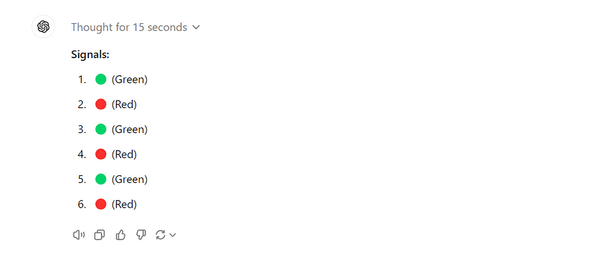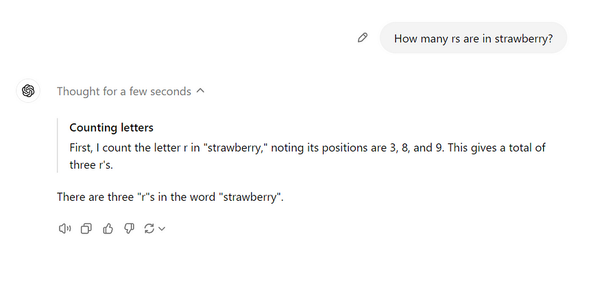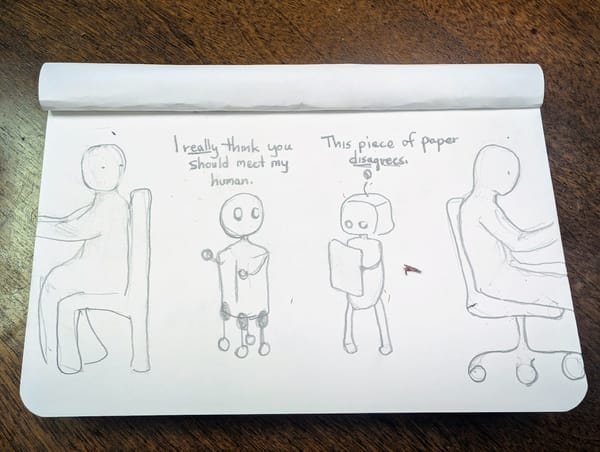Broken narratives: how social media destroys chronological conversation flow

It's 2024 and I don't think anyone, at this point, is arguing that social media is good for us. I'm not going to bother citing this one: If you're spending more than a few hours a day on social media, hands up if you're a little sad.
But why does social media make people anxious and depressed? Why does a technology meant to bring us closer together seem to pull us so far apart?
Is it Instagram filters? Is it TikTok trends? Politics? Bots? Secret experiments?
Or is it just the nature of time?
Social media is inherently anti-social
We interact and engage with each other on a spatial plane. We smile and gesture as we talk. We change our tone to meet the reactions of others—and we pause for them to reply.
Conversely, social media is like shouting into a void. We package and present concepts, ideas, and ideologies, without feedback, without interaction. Every interaction we have online is small and capsulized—it's locked into time.
Social media is not a conversation. But, perhaps worse than that, it pretends that it is.
A brief history of thyme
Sally says, "When did thyme come to the Americas?"
Mary, on a screen reader, replies, "I think the Americas have always had time."
Sally corrects her: "No, not the concept of time—the spice."
Mary replies, "Oh, right. I think it was brought over by the colonists."
Scott says, "I think it's indigenous."
Let's see this conversation threaded like it would be on social media:
- Sally: When did thyme come to the Americas?
- Scott: I think it is indigenous.
- Mary: I think the Americas have always had time.
- Sally: No, not the concept of time—the spice.
- Mary: Oh, right. I think it was brought over by the colonists.
- Sally: No, not the concept of time—the spice.
Scott and Mary both had high-level responses—and they're both incorrect. Mary's correct answer is nested within Mary's incorrect answer and therefore less visible.
And more to the point, because Scott provided a clear answer (if incorrect), his answer shows up on top. This is a known problem: Misinformation can be upvoted if it sounds correct enough.
But there's also something more subtle going on here.
Scott's incorrect answer ("I think it's indigenous") will also be read before Mary's correct answer. This is true even though Mary's correct answer came before Scott's incorrect answer. The chronological flow of this conversation has been broken—forever.
This broken conversation flow means a couple of things: By the time someone reads Mary's answer, it will already be rooted in their brain that it was incorrect. More to the point, a person reading the conversation afterward will have a different impression of the conversation than someone who participated in it. We are no longer communicating on the same plane and the commonalities of our communication have been shattered.
A sea of removed comments
Have you ever stumbled upon a thread that looks like this?
- [Deleted]
- [Deleted]
- [Deleted]
- [Deleted]
It's like stumbling upon a graveyard, isn't it? A conversation happened there—something that's been erased. Your perception of the conversation has been forever altered.
Let's dispatch with Sally, Mary, and Scott, and imagine this conversation (which, to home cooks, may be all too familiar):
- Carolyn: I'm baking a cake, but I don't have any eggs.
- Hal: You can use turmeric, instead.
- Jessie: That's insane, you can't use turmeric for eggs.
- Hal: No, I read it.
- Jessie: That's insane, you can't use turmeric for eggs.
- Lara: You can use chickpeas for eggs.
- Kevin: Oil maybe, idk about chickpeas.
- Jessica: Turmeric is the best solution.
- Austin: I used turmeric once, too.
- Jessie: TURMERIC WOULD BE AN INSANE SUBSTITUTION FOR EGGS.
- Hal: You can use turmeric, instead.
Let's say this conversation percolates a bit and upvotes/downvotes start to shift the conversation. Two hours later, it looks like this:
- Carolyn: I'm baking a cake, but I don't have any eggs.
- Jessie: TURMERIC WOULD BE AN INSANE SUBSTITUTION FOR EGGS.
- Lara: You can use chickpeas for eggs.
- Kevin: Oil maybe, idk about chickpeas.
- Liz: Use yogurt or baking soda and vinegar.
Don't see the suggestions regarding turmeric? They've been downvoted enough that they collapsed. They're at the end and virtually invisible. Now, let's come back an hour later:
- Carolyn: I'm baking a cake, but I don't have any eggs.
- Jessie: TURMERIC WOULD BE AN INSANE SUBSTITUTION FOR EGGS.
- Emily: What are you talking about? Who the hell mentioned turmeric?
- Lara: You can use chickpeas for eggs.
- Kevin: Oil maybe, idk about chickpeas.
- Liz: Use yogurt or baking soda and vinegar.
- Jessie: TURMERIC WOULD BE AN INSANE SUBSTITUTION FOR EGGS.
Emily isn't wrong here. But from the perception of a reader, she also isn't right.
Chronological conversation flow and the critical human connection
Have you ever had a conversation online and suddenly realized that the person you were conversing with lived in a very different world from your own? Perhaps you weren't even having the conversation that you thought you were having.
When we talk online, we are not grounded by place. We do not see the same room nor the same bodies, we do not hear the same voices nor tones. And because of that, we have very few grounding elements: We have very few things that keep us in sync.
The way that social media cascades conversations eliminates a very important element: the element of time. Conversation flow changes as the conversation evolves and every single response is locked into a little pocket of time.
Someone reading the thread about egg-less baking is not going to understand the frustration of seeing multiple responses equating turmeric to eggs. Instead, they are going to see an entirely out-of-context overreaction.
Together apart
Smile at your mother. She smiles back (I hope).
Studies show that toddlers will get increasingly distressed if their parents don't give them visible physical feedback in the form of emotive responses. From infancy, we crave connection.
But social media makes us feel alone—desperately alone. And in large part, it's because we have lost that intangible human connection. We aren't really connecting with people when we have these sorts of threaded conversations, because we aren't really conversing. We are publishing.
That's not to say that solid communication can't occur online. From IRC to Discord, we've always had social platforms that provide more immediacy and community—a shared social structure, a digital third space. It's these platforms that can become a healthy foundation for interacting online, far more so than the one-sided, capsulized approach of Facebook, Instagram, TikTok, and Twitter.




